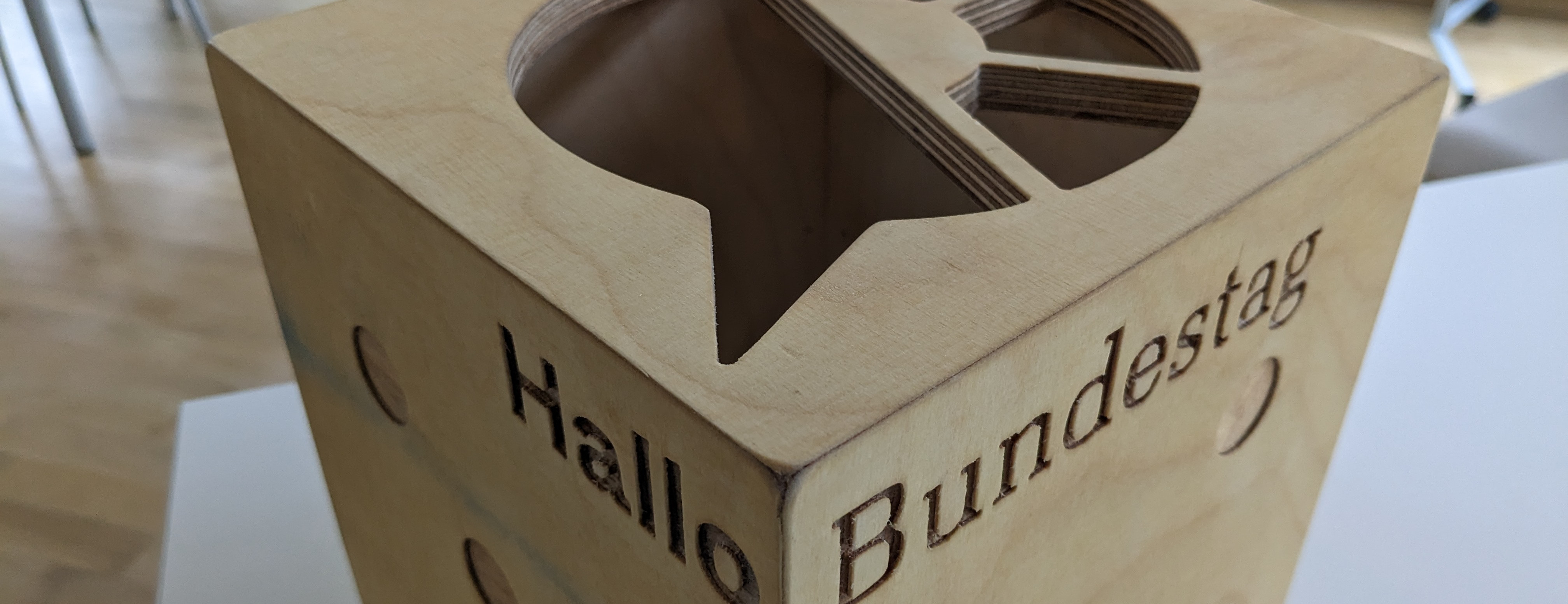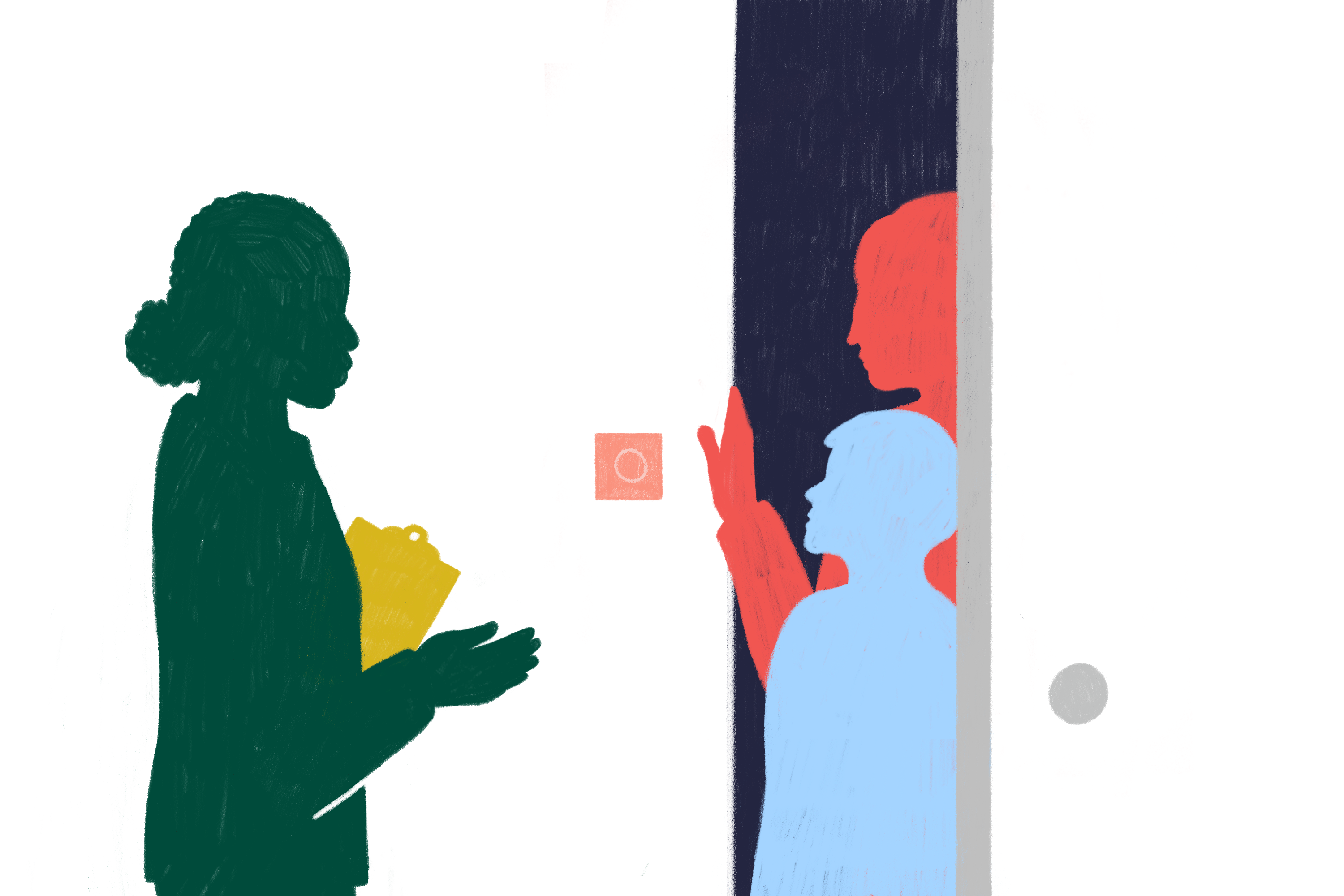Why draw lots?


A randomly assembled group of laypersons, informed by experts, discusses major political issues. Randomly selected citizens' councils are an idea that seems curious to many.
But in fact, they are a simple answer to many of the problems we face as a society. That's why leading political experts recommend them as a sensible democratic innovation. And they are already being used successfully in many places.

Fair and inclusive. The lot is the original form of democracy.
Attic democracy already used the lottery as a principle for filling political offices. The argument was that only randomly selected panels could prevent advantage-taking and nepotism. Even today, chance is still the fairest method of actually representing the diversity of society for the formation of political opinion.

Dispatches from all the filter bubbles in the country.
The crisis of democracy is also a reality crisis: In filter bubbles and echo chambers, we live more and more in realities that are closed off from one another. A digital society in particular needs strong places for real encounters. The randomly selected citizens' council is a new space where a common reality for a political issue is developed from the most diverse perspectives of society.

The citizens' council is the counter-model to populist simplification.
The citizens' council does not break down complex issues. On the contrary, it empowers the participating citizens to exchange informed and differentiated views with the help of experts, to get to know other and new perspectives together and thus to understand alternative opinions.
Citizens' councils are thus less susceptible to lobbying and uninformed voting than referendums.

Efficient instead of endless.
A citizens' council does not engage in long debates. Topics are examined in concentrated workshops from the various realities of the participants' lives. It follows the rules that have long been applied in innovation processes: Well-moderated heterogeneous groups often produce better results than homogeneous ones. And: If you want to create practicable user-oriented solutions, you have to bring all stakeholders (including citizens) to the table.
Former governor Herbert Sausgruber from Vorarlberg, where citizens' councils were included in the constitution, recognized as early as 2011: "Citizens are experts in their living environment.[...] good solutions [can] only emerge through the involvement of the population in all its diversity."

A new citizen lobby.
Many debates run along ideological divides and are shaped by interest groups and lobbying. The population can no longer comprehend lengthy processes and feels disconnected from the decision-making process.
The randomly selected citizens' council can serve as an instrument for involving citizens and capturing detailed feedback from society in a nuanced way. It thus strengthens trust in parliaments through political participation.

The citizens' council also has room for the disappointed.
What disappointments and fears do those experience who do not feel represented by parties (anymore)? In the citizens' council, all voices of the population are heard. Professional moderators ensure a fair exchange at eye level.
Deep Democracy is one of the moderation methods we use for this purpose. It originates from the apartheid settlement in South Africa and works with the wisdom of the minority: Wherever an opposition opposes the general opinion, this group has a wealth of experience that causes it to act in this way. If the majority listens to and acknowledges this, it has a chance to learn from it and can broaden its point of view so that the opposition feels heard.

It is not about opinion but about responsibility.
All participants in the citizens' council have the opportunity to actively shape policy. And they have a responsibility to do so. They are representatives of society. Regular table opinions are of no help; constructive dialog is needed to work out good solutions.
Peter MacLeod, head of MASS LBP in Toronto (Canada), also knows this. Since 2008, they have been successfully conducting random selection citizen participation projects. The first thing he tells the selected citizens is: "This is not about your opinion, but about your responsibility."

The citizens' council is a link between parliament and the population.
For politics, clear party positions and debate are important. At the same time, there are decisions that require broad coalitions with strong support in society. The example of Ireland shows how the randomly selected citizens' council can advance issues that are difficult to resolve constructively in divided parliaments.

"Them up there" becomes: "Us together."
The citizens council is made up of people like you and me. When it makes recommendations with which we personally disagree, pointing the finger at "them up there" doesn't work. That's because by covering as much of society as possible, a diversity of opinions is represented. And if the randomly selected citizens' council produces constructive and comprehensible impulses, trust in us as a society grows as a result.

We have proven it: The random selection-based citizens' council works.
Es geht LOS, together with other thought leaders from politics and civil society, has shown that citizens' councils work: Citizens' councils work not only in Ireland, Belgium and France, but also here! Whether nationwide with the patronage of Wolfgang Schäuble, Marianne Birthler and Horst Köhler or in our Electoral District Days: random selection-based citizen participation has long since ceased to be an experiment, but a true innovation for representative democracy.
That is why we are particularly proud that the current federal government has included citizens' councils in its coalition agreement.
Outreach Random Selection Method
